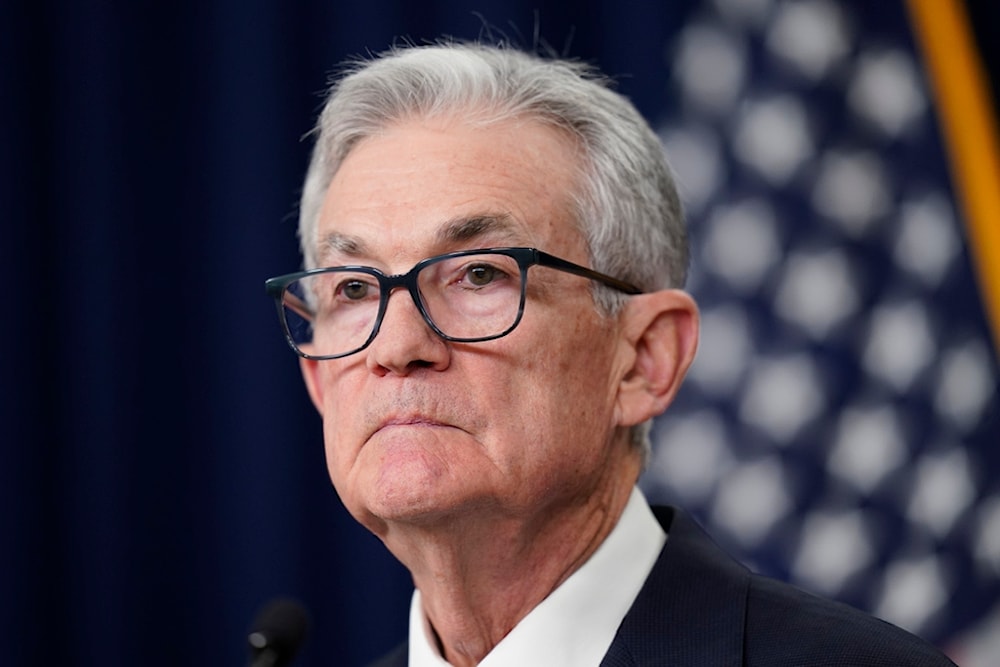US economy uncertain amid growth, inflation concerns: Powell
The US economy is encountering obstacles characterized by low treasury yields, the prospect of rate hikes, and a trend toward more conservative consumer spending.
-

Federal Reserve Board Chair Jerome Powell speaks during a news conference about the Federal Reserve's monetary policy at the Federal Reserve, Wednesday, Dec. 13, 2023, in Washington. (AP)
Federal Reserve Chairman Jerome Powell stated on Wednesday that while the current status of the US economy doesn't suggest a recession, uncertainties regarding growth and inflation make future developments unpredictable.
"I think you can say that there's little basis for thinking that the economy is in a recession now," Powell said.
He further emphasized that a recession within the next year is a possibility, though not guaranteed, and there are ongoing risks.
"I think there's always a probability that there will be a recession in the next year and it's a meaningful probability, no matter what the economy's doing, so it's always a real possibility. This result is not guaranteed. It is far too early to declare victory. And there are certainly risks. It's certainly possible that the economy will behave in an unexpected way. It has done that repeatedly in the post-pandemic period," he said.
Read more: Fed reports US economic slowdown amid efforts to tackle inflation
Earlier in the day, the Federal Reserve said it maintained interest rates at 5.5% for the third time since July.
Recent data revealed a 5.2% growth in the US economy in the third quarter of 2023, exceeding the initially reported 4.9% for the quarter, with the GDP growth for the entire year of 2022 recorded at 2.1%.
But Al Mayadeen analysts estimate that the data is misleading of the real situation on the ground. The longer the Fed keeps interest rates high, the inevitable lag effect will impact the economy.
They also anticipate several headwinds that will keep borrowing costs higher for a longer duration in the US.
One of them is continued war spending. The government will likely borrow another $100 billion from investors to aid Ukraine and "Israel."
This implies that more bonds will be issued to the market, increasing the supply of US debt, and bond yields will remain high.
Just recently, US President Joe Biden has pledged to send an additional $200 million in aid to Ukraine, as discussed in a meeting with Ukrainian President Volodymyr Zelensky on Tuesday.
This comes after Congress Republicans blocked a bill to send military aid worth almost $60 billion to Kiev. Republicans are ever-more openly rejecting the need to fund Ukraine, saying that President Joe Biden needs to devote more attention to domestic security, particularly to stopping illegal migration over the US-Mexican border.

 3 Min Read
3 Min Read








